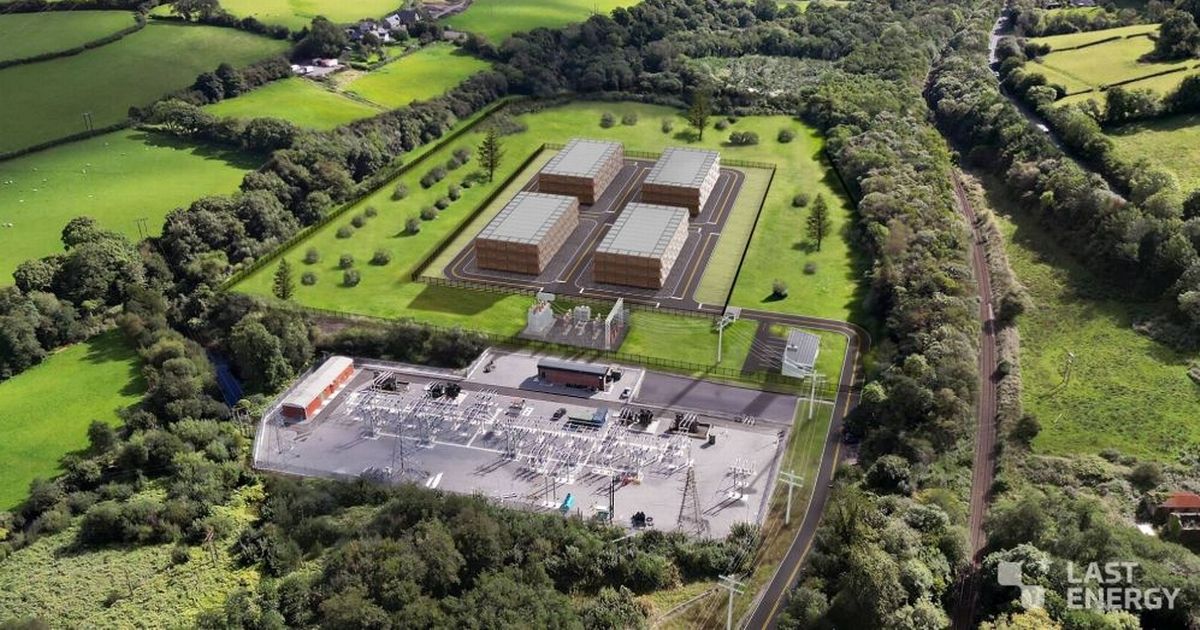Business
Last Energy Advances Plans for Small Nuclear Reactor in Wales

Plans for a small modular reactor nuclear power plant in the Llynfi Valley have received a significant boost following the completion of a preliminary design review (PDR) by UK regulators. The US-based firm Last Energy has announced an investment of £300 million aimed at constructing four microreactors, each with a capacity of 20 megawatts electric, on the site of the former coal-powered Llynfi Power Station in Bridgend, which ceased operations in 1977.
The development is poised to deliver clean energy equivalent to the annual power needs of approximately 244,000 homes. With a design lifespan of 42 years, the microreactors will not only provide continuous energy but also play a vital role in the UK’s ongoing transition towards sustainable power sources.
Regulatory Progress and Future Plans
Last Energy’s PWR-20 plant design has become the first in the UK to successfully pass the PDR, which was conducted by the Office for Nuclear Regulation (ONR), the Environment Agency, and Natural Resources Wales (NRW). The joint summary report from these regulators marks a crucial step for Last Energy as it seeks to establish the first commercial microreactor operation in the UK.
The completion of the PDR follows over a year of early engagement with the regulators and five months of detailed review, which included design workshops and technical submissions. This progress equips Last Energy with tailored regulatory guidance as it advances to the next phase of assessments concerning design, safety, security, and environmental impact.
Chief Executive of Last Energy UK, Michael Jenner, stated, “As the first micronuclear developer to complete a preliminary design review, we applaud the UK’s nuclear regulators for establishing a clear, flexible and direct regulatory pathway for micronuclear technologies to engage in nuclear licensing and environmental permitting.”
The regulators have indicated that Last Energy’s goal to secure a site license decision by December 2027 is feasible, provided the company meets the agreed standards and timelines established during the PDR process. This review addressed key topics, including organizational plans, environmental assessments, and safety analysis.
Economic Impact and Community Benefits
In support of financing the project, Last Energy has secured a letter of intent for approximately £81 million in debt funding from the Export-Import Bank of the United States. The company aims to source at least 10% of its supply chain locally in South Wales, which is expected to generate an estimated economic impact of £30 million beyond business rates. The project is projected to create around 100 jobs in the region.
Last Energy has also accepted a grid connection offer from National Grid Electricity Distribution for 22 megawatts of export capacity. The small nuclear plant will consist of a series of modules that can be assembled quickly, requiring land roughly equivalent to a third of a football pitch. The design allows for fabrication, transportation, and assembly within a 24-month timeframe.
The company has stated that the limited nuclear waste produced will be securely contained, stored, and transported offsite upon decommissioning. All nuclear components, including used fuel, will be housed within an underground containment structure featuring a 500-tonne metal shield.
As this project is classified as a development of national significance, the final planning decision will be made by ministers from the Welsh Government, following an assessment by its planning body, Planning and Environment Decisions Wales (PEDW).
The advancement of Last Energy’s plans signals a progressive move towards integrating small modular reactors into the UK’s energy landscape, potentially reshaping the country’s approach to nuclear energy and sustainability.
-

 World2 months ago
World2 months agoCoronation Street’s Shocking Murder Twist Reveals Family Secrets
-

 Entertainment2 months ago
Entertainment2 months agoAndrew Pierce Confirms Departure from ITV’s Good Morning Britain
-

 Health5 months ago
Health5 months agoKatie Price Faces New Health Concerns After Cancer Symptoms Resurface
-

 Health2 weeks ago
Health2 weeks agoSue Radford Reveals Weight Loss Journey, Shedding 12–13 kg
-

 Entertainment6 months ago
Entertainment6 months agoKate Garraway Sells £2 Million Home Amid Financial Struggles
-

 Entertainment5 months ago
Entertainment5 months agoAnn Ming Reflects on ITV’s ‘I Fought the Law’ Drama
-

 World3 months ago
World3 months agoBailey Announces Heartbreaking Split from Rebecca After Reunion
-

 Entertainment2 months ago
Entertainment2 months agoDavid Jason and Nicholas Lyndhurst Eye Reunion for Only Fools Anniversary
-

 Entertainment3 months ago
Entertainment3 months agoCoronation Street Fans React as Todd Faces Heartbreaking Choice
-

 World3 months ago
World3 months agoEastEnders’ Nicola Mitchell Faces Unexpected Pregnancy Crisis
-

 Entertainment2 months ago
Entertainment2 months agoBradley Walsh Sparks Strictly Come Dancing Hosting Speculation
-

 Entertainment2 months ago
Entertainment2 months agoTwo Stars Evicted from I’m A Celebrity Just Days Before Finale




















